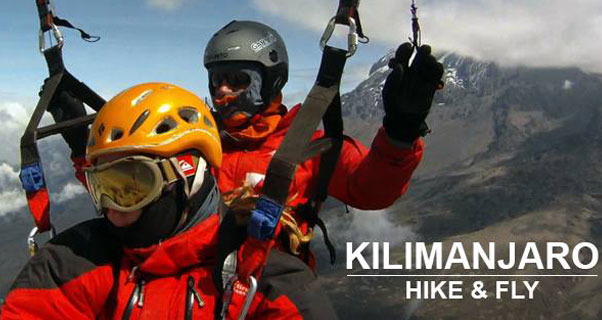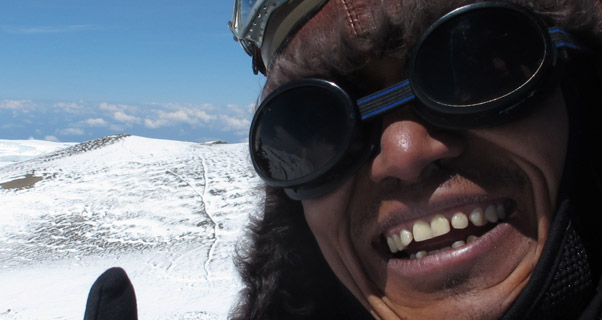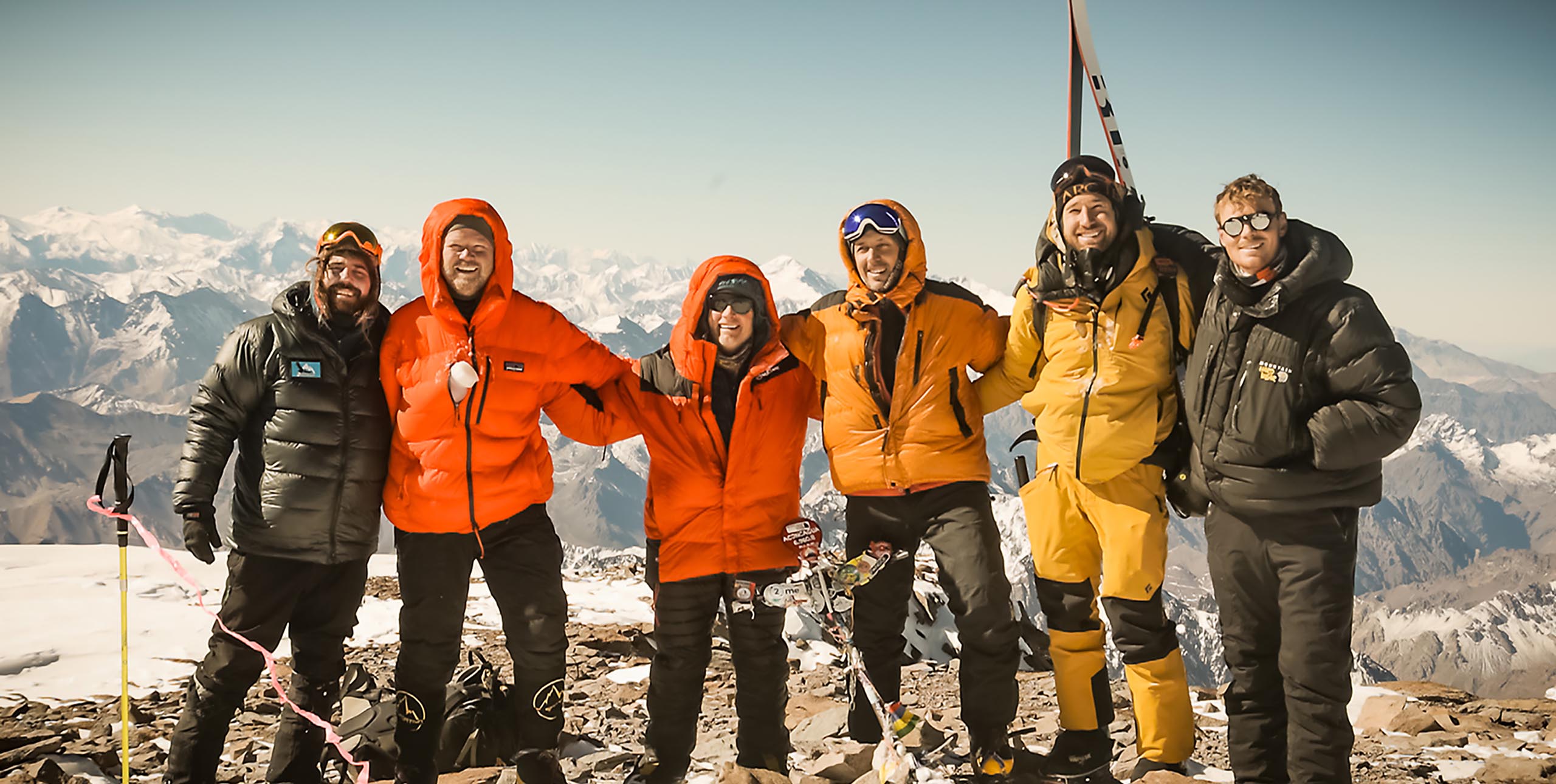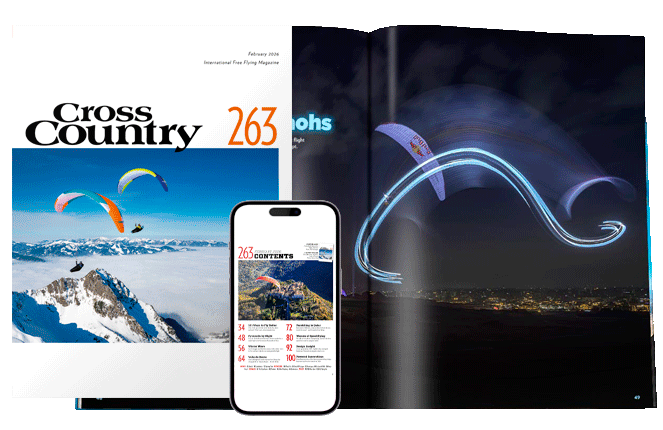Two men find out the hard way that mixing paragliding with corrupt African governments doesn’t work
The wind was perfect and the sun had been warming a nearby ridge that we’d wanted to fly for some time. So when Simon said we should have a go at it, it was an easy decision. Although the ridge was visible from town, the drive and hike up the rutted road took nearly an hour.
The conditions were ideal, with perfect winds and still plenty of daylight to see the landing zone next to the town and the local military base.
The prospect of being fired upon by half-cracked governmental factions did actually cross our minds. However, since we were not on restricted land, wouldn’t be flying in restricted air space and definitely would not be landing in or near the barracks, we decided to fly.
After satisfactorily completing all pre-flight checks, and my ritual deep breath and knock on my helmet, I was ready and flying off. Instantly after launch, warm updrafts from the now shaded ridge lifted me well above the still grounded Simon. I skimmed above Simon, encouraging him to join me.
Silhouettes of massive granite domes were plastered against a deepening blue sky as the city began to transition itself into evening. After about 20 minutes of bliss, the wind dropped off and I opted for an early landing just short of a construction company yard below, where a friendly farmer gave me a cob of corn before setting off for the military barracks.
The decrease in wind and massively tangled lines delayed Simon’s take-off. A phone call confirmed that, as it was getting dark, he was pretty sure he would not manage a launch. Simon was on the ridge 500 feet above me and a mile away from my jeep. I had the key. If I hiked up the mountain, which would take about an hour, I would reach Simon after dark, making finding my jeep rather challenging. Travelling along that remote road at night might also be dangerous due to armed bandits. But, without any other option, I started to hike.
Five minutes into my climb up the ridge, a Special Forces Lieutenant, my double-crossing farmer and 10 armed soldiers stopped me, saying his Commander wanted to see us. When I explained that Simon could not drive down because I had the key, he demanded we drive up the mountain together and retrieve Simon using his personal car – against my recommendation.
At the barracks, soldiers confiscated my glider as tension around this heavily guarded compound rose. The Lieutenant crammed me into the back with two armed soldiers. Heat, sweat and smoke soon had everyone cursing at one another and waving their guns. This truly was West Africa at its best.
Near the top of the hill, dirt turned into mud, but the Lieutenant’s reluctance to admit that the road was too rugged for his vehicle forced him to continue. So 30m further our car high-bottomed in a deep, soupy rut. Turning to his disabled car, the Lieutenant stated that I would have to pay for damages. This was when I knew that my British friend and I were in deep shit. These guys had the ’criminals’ of their career in custody and would make every effort to explod, exploit, and extort an otherwise innocent situation.
We walked toward my jeep through the intensely quiet and dark night while images of a West African military prison, stories of severe beatings, extradition proceedings, CNN, my friends at the Embassy, and the loss of my parachute and jeep played continuously through my head.
My heart skipped when three men with machetes charged from the bush, screaming “Bature! Bature! Bature!” These were armed ’area boys’, and planned to rob me. I stopped.
Intense arguing ensued. The Lieutenant’s deep voice powered over the area boys, but they clearly had a territorial advantage. It was then I noticed that I had been pushed forward, and that the army men created a buffer between the bandits and me.
When the intensity of the arguing lessened, the Lieutenant informed me that the robbers wanted my money. “Well, shoot them then!” I replied. He smirked, “Me and my men are soldiers, not police.” It was evident a deal was being struck as to how my money and I would be divided. “I am your prisoner, in your custody. It is your duty to keep me safe.” Again, he smirked.
Angry and without thought I ran as fast as I could, waiting for the burn of a bullet, to escape the following thud of U.S. issue combat boots, and until the sounds of following footsteps were gone.
Knowing I was bringing mayhem towards Simon, I called him, telling him to “hide in the bush, bandits are coming”. Moments later, the Lieutenant and his men caught up with me, but the bandits were no longer in sight. We reached my jeep about 10 minutes later to find no sign of Simon.
It took a bit of convincing before he would appear. “I’m with the Army. This is real Deliverance type of shit we’re in, man, but come out, it’s alright.” Simon lost no time in shaking hands with the Lieutenant and his motley crew.
Simon takes up the narrative:
When Chris called, he spoke quickly and quietly, and I could sense the fear in his voice. West African soldiers are usually incompetent buffoons who play aggressive and demand money, but will usually relent after a false display of bonhomie. Bandits, however, are different – backslapping and handshakes do not have much effect.
With no bandits in sight, I relaxed. Initially, it was difficult to take things seriously. Everyone who has lived in West Africa has experienced the effect that a uniform and weapon can have on an otherwise sane young man. He suddenly has the potnetial to become a deluded maniac who demands money, time, and above all, respect. But given enough of these three, most soldiers and policemen will decide you are their life-long friend and send you on your way with prayers for a safe journey.
The Lieutenant informed us that he would drive Chris’s jeep. We all piled in and the Lieutenant started to struggle with the clutch and gearshift, resolutely going downhill in first. At the Lieutenant’s car, and having been joined by three other vehicles and 15 armed reinforcements, a heated debate broke out on how to get the Lieutenant’s old banger back down to the barracks. Chris’s offer to help by driving his own jeep wasn’t welcome, in spite of his “just shoot me if I drive the wrong way” attempt to be accommodating. Eventually, a private was assigned to drive it down – and promptly crashed it.
After a long drive we reached the barracks where a reception committee was waiting. We were shoved in front of the Commanding Officer. He mumbled something, so Chris and I both stepped forward, straining to hear. “Stand back!” he shouted. I was pretty pleased that we could seem so threatening.
In my most ingratiating, innocent tone, I said, “Perhaps I ought to let you know that I’m a diplomat.” His expression suggested that I ought not. He issued a barrage of orders.
We were bundled back into Chris’s jeep and drove to another barracks where we stopped, inexplicably, outside the gate. Apparently the man responsible for the next stage of our interrogation would be arriving “any moment from now”. Meanwhile, the key for the jailhouse was not available, so we waited outside.
Chris and I communicated haltingly in Spanish, hoping the soldiers would not understand. “What you say?” demanded the Lieutenant angrily. “It’s my tribal language,” I replied.
As time went on, all began to tire of this inconvenient arrangement. The Lieutenant decided to hold his own desultory interrogation. “Were you carrying any cameras?” I replied, “Why not search our bags? And search us?” The Lieutenant paused, looked at the two huge rucksacks containing gliders and harnesses, before sighing slightly. Clearly he couldn’t be bothered.
Meanwhile the Lieutenant, now fired up, was making increasingly bold claims about his force’s ability. When asked for his ID, he thrust a tatty photo card into our hands with a triumphant flourish and self-righteous snort. It read ’Pakistan Army’. Chris and I erupted into hysterical laughter.
“Right. So you had to borrow our jeep because your own doesn’t work. You can’t even get into your own barracks because you don’t have the key. You can’t be bothered to search our equipment anyway. And you arrest us without charge. And this bad joke is supposed to be a serious military force?” Chris was somewhere between laughing and crying.
I told the Lieutenant that sooner or later our embassies would be asking where we were, and “imprisoned without charge by the army” was probably not going to be a satisfactory answer.
The Lieutenant paused, and then decided to make a call. He tried to switch on my confiscated phone, then stopped, realising that he needed to enter a security code. I agreed to tell him the number if he’d allow me to make a call.
He had no choice. I dialled a friend’s number. A miracle of African telephony, it connected first time. “Claire, we’ve got a bit of a problem. Please listen carefully because I can’t speak long, We’ve been arrested and are at the Barracks. Please call the Embassy Duty Officer. I gave her my number and hung up. She had sounded bewildered, but I felt an incredible sense of relief that someone in the sane world knew where we were.
We were then told that we were not under arrest, but nor were we free to go. “OK, you said I’m not under arrest,” I announced breezily, “so I think I’ll leave now. Thanks for everything chaps. Bye.”
I started walking immediately, ignoring the orders to return. After about 50m I heard footsteps approaching. A breathless Private implored me to return, but I refused, soon to be faced with a nervous, trigger-finger angry Sergeant threatening to kill me. I could understand that he might carry out his threat and explain things later, so I dawdled ignominiously back to the jeep.
Soon a smart Mercedes purred up to the gate. A well-fed young man asked what was going on. Hearing a confused version of the story, he took us into his office. Electricity, television, and a man who seemed to understand that this was all pretty ridiculous, made us all feel rather better than we had for some time. We wrote statements, and a succession of increasingly senior officers came in, mostly just curious to know what was going on.
With each step in the seniority roll we were being better treated. One of the officers said our embassies were “crying out” for our return, “but we have told them that you are fine, ” he assured us.
“We’re not fine!” we retorted in unison. This seemed to be the biggest joke the officers had heard in months.
Eventually the General arrived. He began a sort of moral interrogation.
“Do you think this is an African activity? How would you feel if I put on my tribal clothes and did a dance in your town?” “That would get you a recording contract in my home town, mate!” I thought, but said nothing. I told him that we had learned to paraglide in Africa, and we thought it an ideal activity for Africa. It seemed that the General had decided to accept our explanation, since we were free to go.
As we marched out of the building, bidding farewells to our captors as if we were old friends leaving a dinner party, Chris waved the jeep key triumphantly at the furious, over-ruled Lieutenant. Promising to take one of the officers paragliding one day, we jumped into the jeep and sped off into the deserted midnight streets. The relief was intoxicating. We screamed angry, happy, and meaningless words to each other as we screeched across empty road junctions.
The following day at work, our Ambassador had gone for what he thought would be a routine meeting at the Ministry of Foreign Affairs. Upon arrival he found the Minister himself, flanked by his most senior aides.
“One of your diplomats,” the Ambassador was informed, “accompanied by an American teacher, has flown his paraglider from an official secure zone into the grounds of the Presidential Villa.” This act of international terrorism could not pass unmentioned, of course.
Even the President himself had been briefed, and demanded an explanation. Our dumbstruck Ambassador said that he thought the details were not correct, but promised to clarify. As he left the Ministry, he bumped into his American counterpart, clearly about to receive the same treatment.
A few minutes later, I found myself explaining to my Ambassador that the story was nonsense. Clearly, the Army had failed to brief the civilian authorities, so the civilians had made it up for themselves. Rumour had it that the President had demanded an explanation from his Chief of Security, who (not briefed by the Army) was unable to give one, and being no fan of foreign diplomats, had simply invented the story.
Gradually the story died. We kept our promise not to fly above the city. The government found other things to do, although governing the country was not among them. The rainy season took off in earnest and flying became something to talk, and dream, about. Well, sort of.











